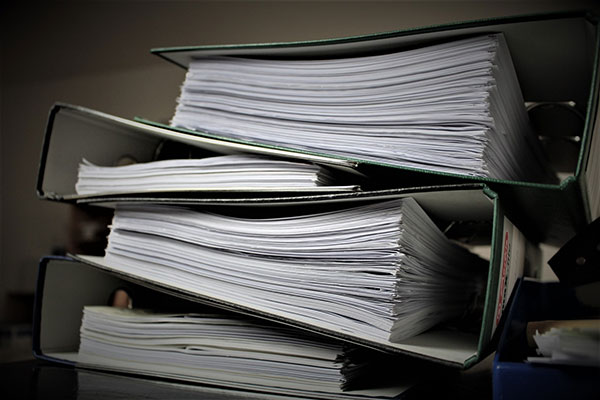How long do I need to keep my accounting records for?

Running a business incurs a lot of paperwork. In fact, for most new business owners, the amount of information and documentation they have to retain comes as an unpleasant surprise. Making Tax Digital will make it even more unpleasant, we regret to inform you.
But what records do you need to keep and how long do you need to keep them for? Enough for HMRC to see whether you’ve been keeping your financial records as detailed as they require them to be and to see whether you’ve been telling the truth about how much you and your company are taxed.
Getting it wrong with financial record keeping may incur penalties running into several thousands of pounds depending on HMRC’s view of the severity of what they deem to be the inadequacy of a company’s efforts.
No business wants to pay out more it doesn’t need to so, in this article, Panthera Accounting covers everything you need to know.
How should you store your records?
HMRC does not actually specify the form you should keep your financial records in so how do you is a matter of personal preference. Many like to keep paper records, others digital records, and some still prefer their accountant to keep all of their documentation.
What should I keep and how long for?
Self-employed
Sole traders and partners must keep records of:
- Sales and income,
- Expenses incurred,
- VAT records,
- PAYE records,
- Information on personal income drawn from the business,
- Information on amounts invested into a business, and,
- Records of income you’re expecting but have not yet received (for example, 30-day invoices which have been issued but not yet paid).
You have to keep these records for a minimum of five years after self-assessment day (31st January). So, for the submissions you make on the next self-assessment day at the time of writing (31st January 2019), your records must be kept and be accessible from 31st January 2014.
Evidence you’ll need to keep will include items like your bank statements, invoices you’ve issued (and received), and any till rolls.
Limited companies
Limited company accounting requirements are more complicated and, as a result, you’ll be expected to keep more information for HMRC if they want to see it.
In addition to sales and income, monies received and spent, expenses incurred, VAT records, and PAYE records, you’ll need to record details of:
- Company-owned assets (and any mortgages or loans secured on them),
- Debts owed or owing (including indemnities and debentures),
- Stock (including how you calculate the value),
- Shareholder votes, and,
- Shareholder transactions.
As well as bank statements and invoices you’ve issued (and received), you’ll need to keep copies of contracts you’ve signed up to, petty cash books, and receipts.
You must keep these records for six years from your last financial year end. That length of time may increase if there are transactions that spread over multiple financial years. VAT MOSS records must be kept for 10 years.
PAYE records
You must keep records of what you pay your staff for up to 3 years, including information on amounts paid to staff (including deductions) and to HMRC, tax code notices, taxable expenses, taxable benefits, information on the Payroll Giving Scheme, and leave & sickness absences.
Oxfordshire’s SME-focused accountancy firm and your VAT
If you are struggling with a growing accounts receivable balance, get in touch with our team. We can help you put a plan in place to reduce the number of late paying customers you have in order to improve your cashflow.
For more information, call us on 01235 768 561 or drop us an email to enquiries@pantheraaccounting.com – we’ll be back in touch with you shortly.

